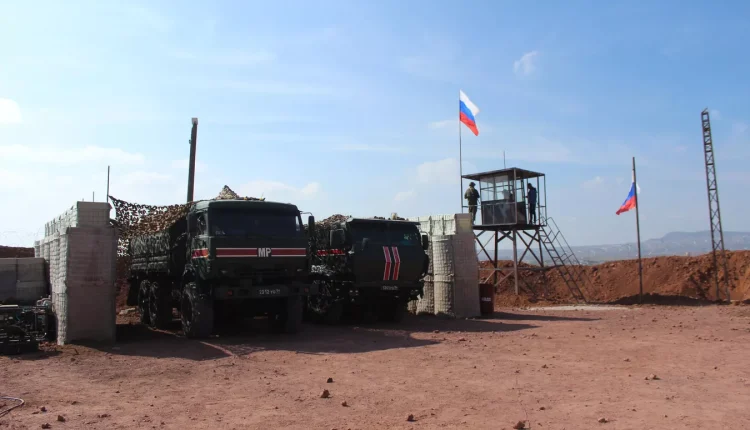QAMISHLI, Syria (North Press) – Israel’s discovery of advanced Russian weapons with Hezbollah has heightened tensions, while Russia’s new observation points along the Syrian Golan Heights indicate a significant strategic shift.
Russian forces have established nine observation points on the outskirts of the Syrian Golan Heights to conduct surveillance operations from both the air and ground.
This coincided with Israel’s announcement that it had discovered advanced Russian weapons in the possession of Hezbollah in southern Lebanon, including Kornet anti-tank missiles, which Israel claims the group obtained from Syrian army stockpiles.
Israel believes that Moscow should play a role in pressuring Iran to stop sending weapons from Syria to Hezbollah, either by monitoring supply routes or applying direct pressure on the Syrian government.
Russian experts emphasize that any new Russian role in Syria must be coordinated with the Syrian government as a matter of “sovereignty.”
Settlement Agreement
It is important to note what Israeli sources have indicated regarding Syria’s readiness to participate in a settlement agreement between Lebanon and Israel that does not involve interference in Lebanese internal affairs.
According to these sources, Syrian President Bashar al-Assad was asked to prevent the smuggling of Iranian weapons to Hezbollah.
However, there has been no official Russian confirmation of such an agreement, despite Russia repeatedly asserting its fundamental support for peaceful and political solutions to crises.
Middle East expert Andrei Ontikov pointed out that discussions about Russia’s willingness to play a role in Syria aligned with Israeli interests are purely journalistic fabrications and lack connection to the existing reality.
He added that the Israeli aim in portraying the Russian stance in this manner is to sow doubts about its role in Syria, ultimately distorting the reality of Russian operations and depicting them as mere border guards.
He clarified that the observation points established by Russia near the separation fence between the Golan Heights and Quneitra, southern Syria, already existed.
He explained that their numbers were increased at the request of the Syrian government in an effort to prevent any Israeli escalation against Syria, following statements from Israeli officials in that direction.
Critical phase
International affairs researcher Sergey Persanov stated in an exclusive statement to North Press that the world is preparing for a perilous phase, awaiting positions from President-elect Donald Trump regarding the war in Ukraine and the Middle East.
He believes that discussions about changes in Russia’s role in Syria, which could harm ties with the Syrian government and Iran, do not align with the current stage.
Persanov pointed out that this phase marks the largest crisis in the history of the conflict with the Western bloc, necessitating increased cooperation and coordination with countries that Moscow considers partners in the region, including Iran and Syria.
He stated that Russia is prepared to act as a mediator among regional adversaries, but only with the agreement of all parties involved, as success requires mutual acceptance and balance.
He emphasized that, given the current tensions in the Middle East, it is unrealistic to expect fundamental changes in the role of Russian forces in Syria that do not consider the interests of the Syrian government.
He cautioned that such changes could create a rift in relations with Iran, especially with no end in sight to the conflicts in Lebanon and Gaza.
Persanov also dismissed the idea that Western pressures, along with some Arab states, could lead to shifts in Syria’s positions.
He noted that the visit of Iranian Supreme Leader’s advisor Ali Larijani sends a strong message of support to Damascus, indicating that Iran is committed to backing Syria regardless of the consequences.
Additionally, informed sources indicate that Russia recently requested that Iran’s Islamic Revolutionary Guard Corps (IRGC) vacate the bases of Iranian-backed militias near the Deir ez-Zor military airport and several other locations in the city. This request came shortly after Damascus, with Russian support, restricted the activities of Iranian and Hezbollah militias to avoid Israeli targeting.

